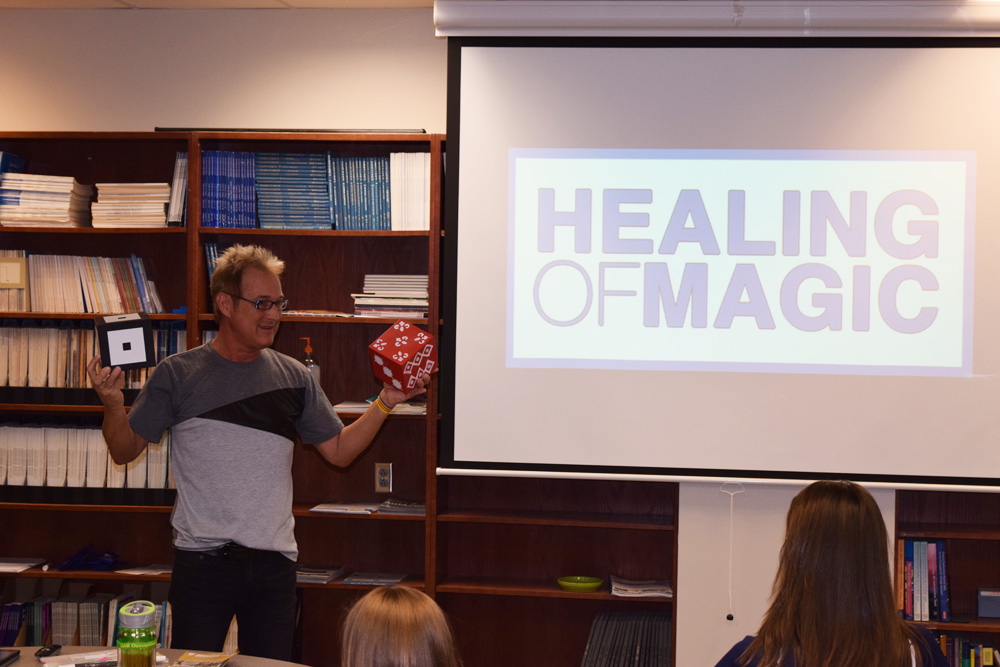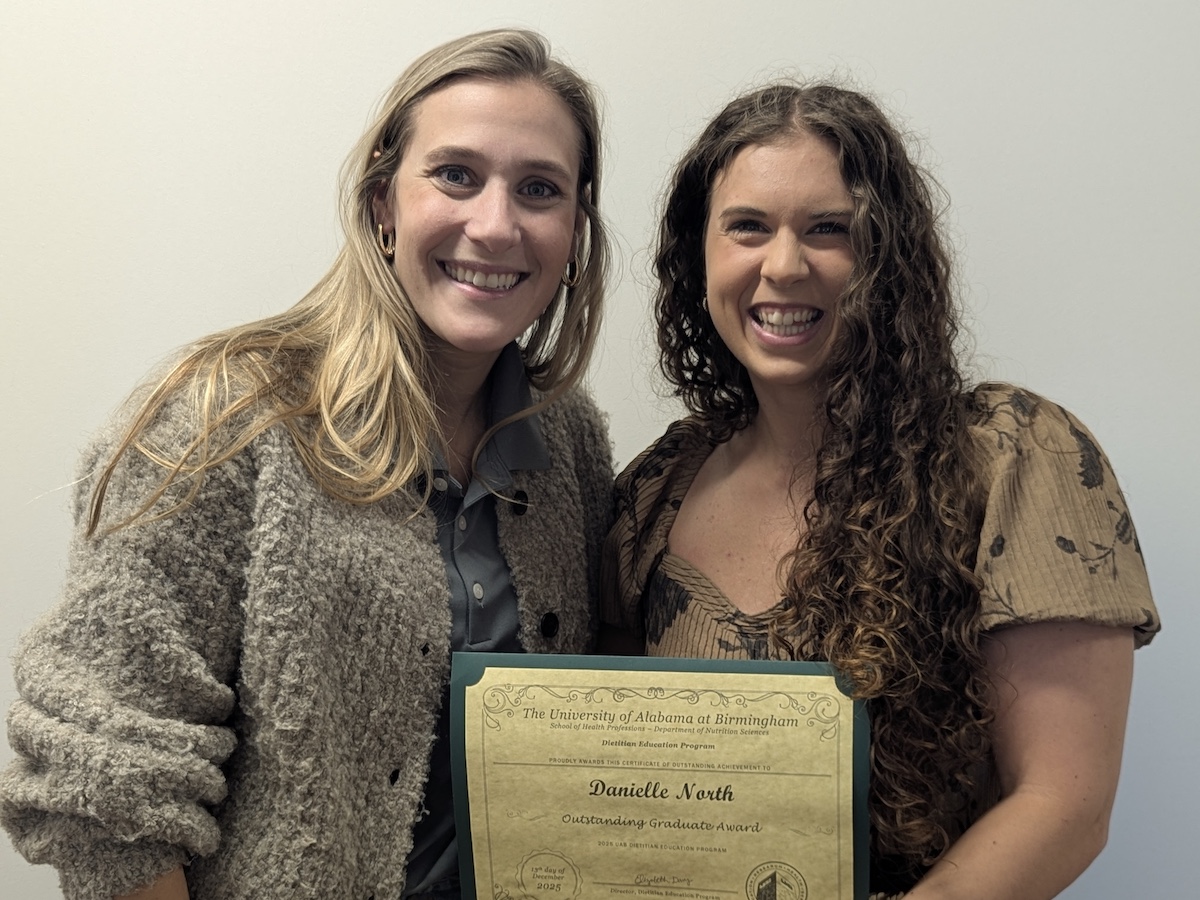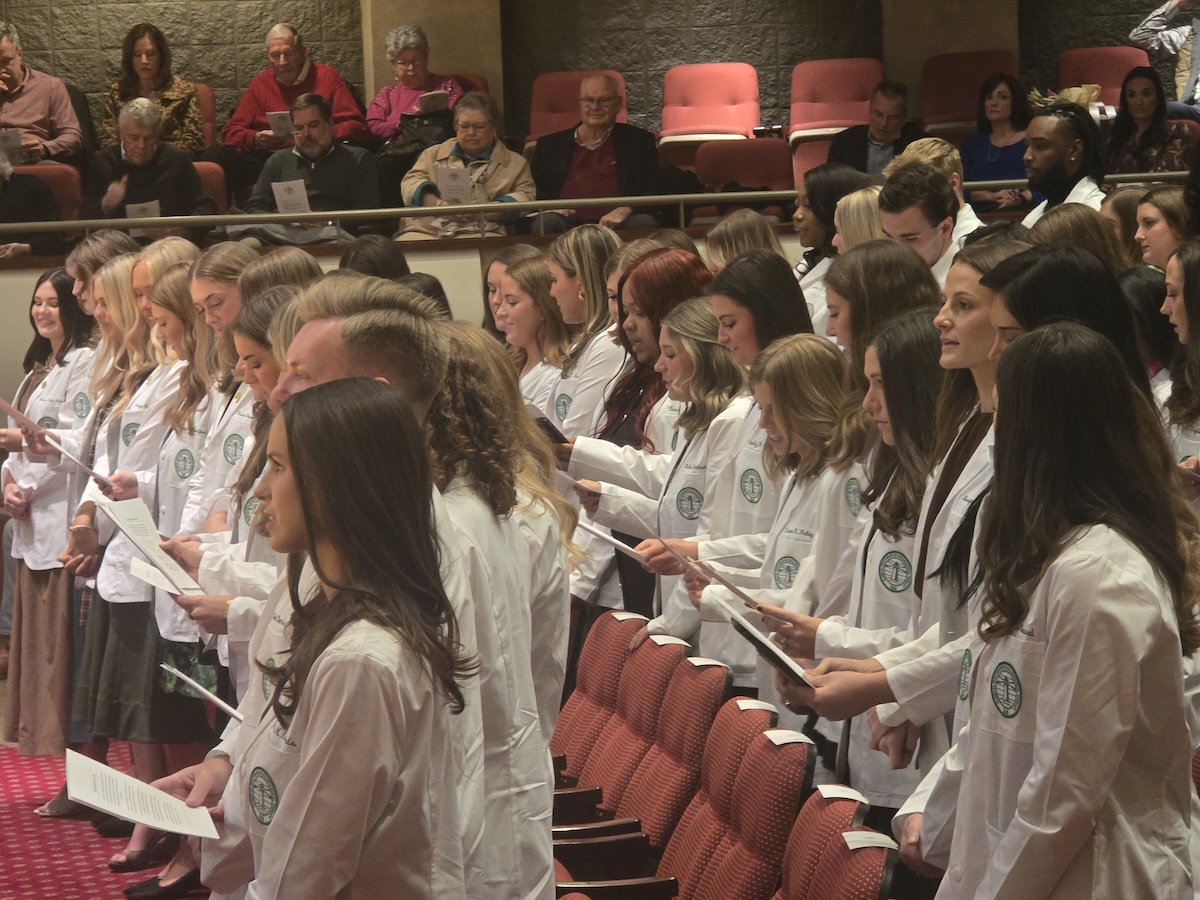 Kevin Spencer is an illusionist and artist who has performed magic in front of tens of thousands of people on stages in 34 countries on six continents.
Kevin Spencer is an illusionist and artist who has performed magic in front of tens of thousands of people on stages in 34 countries on six continents.A day ahead of performing his “Theatre of Illusion” at the UAB Alys Stephens Center, he delivered a performance in front of a crowd of only 50, but it was a performance that has the potential to impact tens of thousands of people around the world.
Spencer, who is considered the leading authority on the therapeutic benefits of magic, entertained and educated students in the UAB School of Health Professions’ Master of Science in Occupational Therapy program. This workshop was part of a four day residency with UAB’s Institute for Arts in Medicine, a partnership between the Alys Stephens Center and UAB Medicine
First, he pulled out what appeared to be a simple box and talked about how people can be ‘placed in a box’ by a diagnosis or a condition. As Spencer talked, he kept changing the appearance of the box and magically extracting new boxes.
“I have learned to look beyond the box, to ignore the obvious containers,” said Spencer who is the founder of Healing of Magic, a program designed to train therapists using arts-integrated techniques. “I want you to be curious with your clients and to always look inside every box to see what is really hidden inside,” he encouraged these soon-to-be-therapists.
Next, Spencer gave the UAB OT first-year students their own bag of tricks – complete with magical props like ropes and wands – and showed them how to perform some basic magic.
But the real trick to the magic Spencer showed them is that every performance is designed to help clients’ rehabilitation in three key areas:
Dexterity
“In order to perform a magic trick, the client must to be able to manipulate the props. Each trick is easily accommodated to the skill level of your clients. And as a person learns to perform a magic trick, they voluntarily spend much more time working to acquire a complex and sequential series of motor skills. In more traditional forms of therapy, they might simply tolerate those activities rather than become fully engaged in them,” said Spencer.Motivation
"Teaching them to do something that the normal 'able-bodied' person can’t do – a magic trick – can be a tremendous boost to the self-esteem of someone with a disability, debilitating injury or illness, improving their confidence and motivating them in other areas of their lives," said Spencer.Socialization
“Magic doesn’t exist in a vacuum," said Spencer. "It’s not a magic trick until you show it to someone and they say, ‘how did you do that?’ So once they have mastered a trick, they are motivated to show it to someone."And he expanded on the socialization to show the students that there are no age limits to performing magic tricks or learning magic tricks. Spencer, who holds a certification in autism studies and is a faculty member in the special education program at Carlow University in Pennsylvania, gave the class another reminder that boxes are not for placing people in; they are for sawing people (and ideas) in half.
“Think about your older clients, does grandpa want to say ‘Hey kids, come look at me put pegs in a board.’ or does he want to say ‘Hey kids, come watch me do a magic trick!’,” asked Spencer. “Engage to learn. Use your curiosity. Use their curiosity. Integrate a little magic into your work as an occupational therapist.”
Spencer was drawn into magic as therapy after a near-fatal car crash early in his career. He suffered a closed brain injury and a lower spinal cord injury and spent several months in rehabilitation working to regain skills he lost.
You can learn more about Spencer, his craft and his work at SpencersMagic.com.
You can see Spencer work his magic in person when he brings his “Theatre of Illusion” to the UAB Alys Stephens Center tonight.

